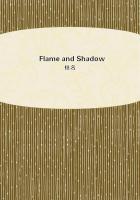But no correct estimate of the social standing of the peasantry can stop here, or content itself with legal or administrative definitions. In no degree of society do men stand isolated, and a description of individual status alone would be thoroughly incomplete. Men stand arranged in groups for economical and political cooperation, and these groups are composed according to the laws of the division and hierarchical organisation of labour, composed, that is, of heterogeneous elements, of members who have to fulfil different functions, and to occupy higher and lower positions. The normal group which forms as it were the constitutive cell of English mediaeval society is the manor, and we must try to make out in what way it was organised, and how it did its work in the thirteenth century, at the time of fully developed feudalism.
The structure of the ordinary manor is always the same. Under the headship of the lord we find two layers of population the villains and the freeholders; and the territory occupied divides itself accordingly into demesne land (1*) and 'tributary land'
(if I may use that phrase) of two different classes. The cultivation of the demesne depends to a certain extent on the work supplied by the tenants of the tributary land. Rents are collected, labour supervised, and all kinds of administrative business transacted, by a set of manorial officers or servants.
The entire population is grouped into a village community which centres round the manorial court or halimote, which is both council and tribunal. My investigation will necessarily conform to this typical arrangement. The holding of the peasant is the natural starting-point: it will give us the clue to the whole agrarian system. Next may come that part of the territory which is not occupied in severalty, but used in common. The agrarian obligations with regard to the lord and the cultivation of the demesne land may be taken up afterwards. The position of privileged people, either servants or freeholders, must be discussed by itself, as an exceptional case. And, lastly, the question will have to be put to what extent were all these elements welded together in the village community, and under the sway of the manorial court?
The chief features of the field-system which was in operation in England during the middle ages have been sufficiently cleared up by modern scholars, especially by Nasse, Thorold Rogers, and Seebohm, and there is no need for dwelling at length on the subject. Everybody knows that the arable of an English village was commonly cultivated under a three years' rotation of crops;(2*) a two field system is also found very often;(3*) there are some instances of more complex arrangements,(4*) but they are very rare, and appear late-not earlier than the fourteenth century. Walter of Henley's treatise on farming, which appears to belong to the first half of the thirteenth, mentions only the first two systems, and its estimate of the plough-land is based on them. In the case of a three field rotation a hundred and eighty acres are reckoned to the plough; a hundred and sixty in a system of two courses.(5*) We find the same estimate in the chapters on husbandry and management of an estate which are inserted in the law-book known as Fleta.(6*) The strips in the fields belonging to the several tenants were divided by narrow balks of turf, and when the field lay fallow, or after the harvest had been removed, the entire field was turned into a common pasture for the use of the village cattle. The whole area was protected by an inclosure while it was under crop.
A curious deviation is apparent in the following instance, taken from the cartulary of Malmesbury. The Abbey makes an exchange with a neighbour who has rights of common on some of the convent's land, and therefore does not allow of its being cultivated and inclosed (inhoc facere). In return for certain concessions on the part of the Abbey, this neighbouring owner agrees that fallow pasture should be turned into arable on the condition that after the harvest it should return to common use, as well as the land not actually under seed. Lastly comes a provision about the villains of the person entering into agreement with the Abbey: if they do not want to conform to the new arrangement of cultivation, they will be admitted to their strips for the purpose of ploughing up or using the fallow.(7*)The case is interesting in two respects: it shows the intimate connexion between the construction of the inclosure (inhoc) and the raising of the crop; the special paragraph about the villains gives us to understand that something more than the usual rotation of crops was meant: the 'inhokare' appears in opposition either to the ordinary ploughing up of the fallow, or in a general sense to its use for pasture; it seems to indicate extra-cultivation of such land as ought to have remained uncultivated. These considerations are borne out by other documents. In a trial of Edward I's time the 'inheche' is explained in as many words as the ploughing up of fallow for a crop of wheat, oats, or barley.(8*) The Gloucester Survey, in describing one of the manors belonging to the Abbey, arranges its land into four fields (campi), each consisting of several parts:














